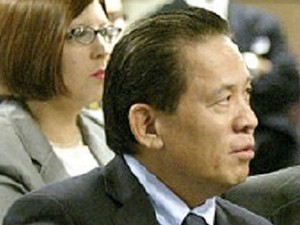No bribery, only lapses, says report on Okada firm
MANILA, Philippines—A “third-party” probe commissioned by Japanese gaming magnate Kazuo Okada has uncovered lapses in his firm’s internal governance systems, but refuted accusations that it had resorted to bribery to gain a foothold in the Philippine gaming market.
In a statement released in Tokyo on Saturday, Okada’s Universal Entertainment Corp. said the third-party committee submitted a report dated June 21 which showed that the controversial “Freeh Report,” referring to an earlier probe conducted by a former head of the Federal Bureau of Investigation that accused Okada of making improper cash payments and gifts to Philippine regulators, was “lacking credibility.”
“The investigation made it clear that there is no fact that Universal offered illegal funds. It also revealed that despite our governance problem, a significant amount of fund was transferred in breach of the internal regulations by the employees in charge of arranging remittance. It also became clear that we were in a position of victims in a sense,” Universal said.
Universal said the report also clarified the factual relationships on the credibility of the Freeh Report and the cash transfers cited in some media reports.
Okada is facing investigation in the United States for alleged violations of antibribery laws in relation to a $2-billion casino project in the Philippines.
Article continues after this advertisementInternational news service Reuters reported last year that $40 million was allegedly paid to Rodolfo Soriano, a businessman with ties to the former head of the Philippine Amusement and Gaming Corp. (Pagcor), around the same time the Japanese company was granted concessions for the Manila casino in 2010.
Article continues after this advertisementCiting contents of the third-party probe, Universal admitted it “had governance problems, which became the source of the current issues.”
Regarding the alleged payment to Soriano, the report reached the following conclusions:
Universal mistakenly paid $2.5 million dollars due to the lack of prompt and appropriate report on the road problem from the staff in charge of the Philippine project to the management of Universal. Therefore no evidence was found to implicate this payment as bribery;
Ten million dollars was found to be compensation for loss arranged by ex-employees by way of flow back of the fund.
Five million dollars in payment was made without going through proper internal accounting procedure.
